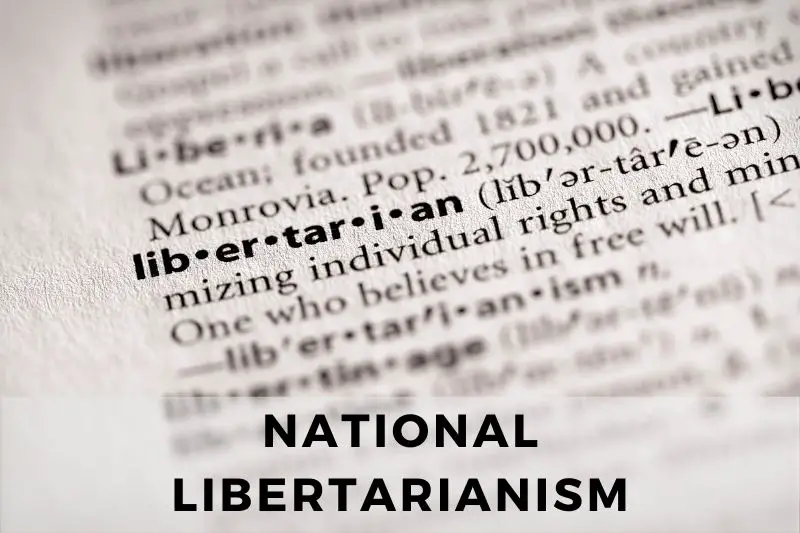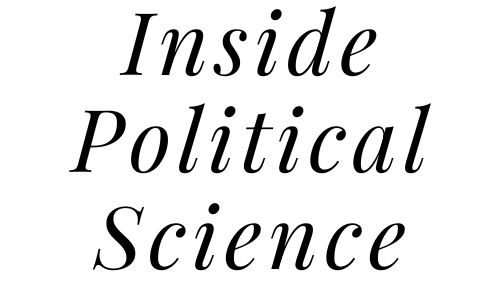
In the landscape of political ideologies, one that has been gaining traction in recent years is National Libertarianism. As its name suggests, it combines the principles of libertarianism with a focus on national interests and sovereignty. This fusion creates a unique perspective on governance and policy-making that challenges traditional paradigms.
In this article, we delve into the depths of national libertarianism, exploring its origins, core principles, and most importantly, its potential impact on government policies. From economic deregulation to social liberties, the influence of national libertarianism is far-reaching and continues to shape political discourse worldwide.
Introducing National Libertarianism
What is National Libertarianism?
National Libertarianism stands at the crossroads of two significant ideological pillars: libertarianism and nationalism. It is a political philosophy that seeks to harmonize the principles of individual liberty, limited government intervention, and free market economics with a staunch emphasis on national sovereignty and interests.
At its core, National Libertarianism advocates for maximizing personal freedoms while simultaneously prioritizing the protection and advancement of a nation’s identity, culture, and autonomy. It proposes a governance framework where individuals are empowered to make choices that best suit their interests, while also ensuring that the state’s role is confined to safeguarding national borders, enforcing property rights, and preserving individual liberties.
The Origins of National Libertarianism
The roots of National Libertarianism can be traced back to the mid-20th century, amidst the backdrop of rapid globalization and the expansion of government authority. As traditional liberal principles faced challenges from both the left and the right, intellectuals and activists sought to redefine the boundaries of political discourse.
Drawing inspiration from classical liberal thinkers such as Friedrich Hayek and Murray Rothbard, National Libertarianism emerged as a pragmatic response to the perceived threats posed by centralized authority and supranational entities. While these thinkers championed the primacy of individual freedom and the virtues of free markets, they also recognized the importance of national sovereignty in safeguarding those liberties.
Over time, as globalization intensified and the forces of economic integration grew stronger, National Libertarianism underwent a transformation, incorporating elements of nationalism and protectionism into its ideological framework. This evolution reflected a growing sentiment among proponents that unchecked globalization posed a threat to both individual freedoms and national identity.
In essence, National Libertarianism represents a synthesis of libertarian principles with a keen awareness of the importance of preserving and promoting national interests in an increasingly interconnected world.
Core Principles and Ideologies of National Libertarianism
#1. Individual Liberty
National Libertarianism places utmost importance on individual liberty, viewing it as the foundation of a free and prosperous society. It advocates for minimal interference from the government in the personal and economic affairs of individuals, allowing them the maximum freedom to pursue their own goals and interests.
#2. Limited Government Intervention
A key tenet of National Libertarianism is the belief in limited government intervention in the economy and society. This tenent is shared with both conservatism and Republicanism. It argues that excessive regulation and bureaucracy stifle innovation, hinder economic growth, and infringe upon individual freedoms. Instead, National Libertarians advocate for a smaller, more efficient government that focuses on core functions such as national defense, law enforcement, and protection of property rights.
#3. Free Market Economics
National Libertarianism espouses free market economics as the most effective means of allocating resources and promoting prosperity. In this sense it overlaps with corporate libertarianism. It contends that competitive markets, driven by the voluntary exchange of goods and services, lead to greater efficiency, innovation, and wealth creation than centrally planned economies. National Libertarians advocate for policies that reduce barriers to entry, promote competition, and foster entrepreneurship.
#4. Non-Aggression Principle
Central to National Libertarianism is the non-aggression principle, which holds that individuals should not initiate force or coercion against others. This principle forms the basis of a peaceful and voluntary society, where interactions are based on mutual consent and respect for individual rights. National Libertarians reject the use of force, fraud, or coercion to achieve social or political objectives, instead favoring voluntary cooperation and negotiation.
#5. National Sovereignty
National Libertarianism emphasizes the importance of national sovereignty and self-determination. It asserts that nations have the right to govern themselves free from external interference or domination. National Libertarians are wary of supranational organizations and treaties that infringe upon national sovereignty, viewing them as threats to individual liberty and democratic governance.
#6. Property Rights
Protecting property rights is fundamental to National Libertarianism. It argues that individuals have the right to own, use, and dispose of property as they see fit, provided they do not infringe upon the rights of others. National Libertarians advocate for strong legal protections for property rights, including intellectual property, to ensure a fair and just society where individuals can thrive and prosper.
#7. Individual Responsibility
National Libertarianism promotes the idea of individual responsibility, holding that individuals are accountable for their actions and choices. It emphasizes self-reliance, personal initiative, and voluntary cooperation as the cornerstones of a flourishing society. National Libertarians believe that individuals should take ownership of their lives and decisions, rather than relying on government or external forces to solve their problems.
#8. Decentralization
Decentralization is a core principle of National Libertarianism, advocating for the dispersal of power and authority away from centralized institutions. It argues that decentralized governance structures, such as local government and community-based organizations, are more responsive to the needs and preferences of individuals than distant bureaucracies. National Libertarians support devolving power to the lowest level possible, empowering communities to govern themselves and make decisions that affect their lives.
How National Libertarianism Can Impact Government Policies
#1. Economic Policies
Deregulation
National Libertarianism advocates for deregulation across various industries, believing that excessive government intervention stifles innovation and economic growth. By reducing regulatory barriers, such as licensing requirements and bureaucratic red tape, National Libertarians argue that businesses will have more freedom to operate efficiently and competitively.
Promotion of Free Markets
Central to National Libertarian economic policies is the promotion of free markets. This includes removing tariffs, subsidies, and other distortions that inhibit free trade and competition. National Libertarians argue that free markets lead to optimal resource allocation, higher productivity, and greater consumer choice, ultimately benefiting society as a whole.
Privatization Initiatives
National Libertarianism supports privatization initiatives aimed at transferring government-owned assets and services to the private sector. By privatizing industries such as healthcare, education, and infrastructure, National Libertarians argue that competition and innovation will improve quality and efficiency while reducing taxpayer burden.
#2. Taxation and Fiscal Policies
Advocacy for Lower Taxes
National Libertarianism advocates for lower taxes across the board, viewing taxation as a form of coercion that infringes upon individual liberty. National Libertarians argue that reducing taxes stimulates economic activity, incentivizes investment and entrepreneurship, and allows individuals to keep more of their hard-earned income.
Support for Fiscal Conservatism
In line with its emphasis on limited government intervention, National Libertarianism promotes fiscal conservatism. This includes balancing budgets, reducing government spending, and eliminating wasteful programs and subsidies. National Libertarians argue that fiscal responsibility is essential for long-term economic stability and prosperity.
#3. Social Policies
Protection of Individual Liberties
National Libertarianism places a strong emphasis on protecting individual liberties, including freedom of speech, religion, and association. National Libertarians oppose government infringement on these rights, such as censorship, surveillance, and restrictions on personal behavior, arguing that such actions undermine the principles of a free society.
Limited Government Intervention in Social Issues
National Libertarianism advocates for limited government intervention in social issues, including marriage, drug use, and personal relationships. National Libertarians argue that individuals should have the freedom to make their own choices without government interference, as long as they do not infringe upon the rights of others.
#4. Foreign Policy
Non-Interventionism
National Libertarianism promotes a non-interventionist foreign policy, advocating for diplomacy and trade over military intervention and nation-building. National Libertarians argue that military intervention often leads to unintended consequences, including blowback, loss of life, and increased hostility toward the United States.
Isolationist Tendencies
While not strictly isolationist, National Libertarianism tends to prioritize national interests over global interventionism. National Libertarians argue that the United States should focus on defending its borders and sovereignty rather than engaging in costly and protracted foreign conflicts.
#5. Regulatory Policies
Streamlining Regulatory Processes
National Libertarianism advocates for streamlining regulatory processes to reduce bureaucratic inefficiencies and burdens on businesses. By simplifying regulations and promoting regulatory transparency, National Libertarians argue that compliance costs will decrease, fostering a more conducive environment for economic growth and innovation.
Re-evaluation of Environmental Regulations
National Libertarianism calls for a re-evaluation of environmental regulations to balance environmental protection with economic considerations. National Libertarians argue that overly burdensome regulations can stifle economic development without necessarily achieving meaningful environmental outcomes. Instead, they propose market-based solutions, such as emissions trading and property rights approaches, to address environmental challenges more effectively.
#6. Criminal Justice and Law Enforcement
Emphasis on Individual Rights
National Libertarianism emphasizes the protection of individual rights within the criminal justice system. National Libertarians advocate for due process, fair trials, and proportionate sentencing to safeguard against government overreach and miscarriages of justice. They also support reforms to address systemic issues such as police brutality and mass incarceration.
Reform of Drug Laws
National Libertarianism calls for the reform of drug laws, including the decriminalization or legalization of certain substances. National Libertarians argue that drug prohibition has failed to curb drug use and has led to negative social consequences, such as overcrowded prisons and violence associated with illicit drug markets. Instead, they advocate for treating drug abuse as a public health issue rather than a criminal offense.
#7. Healthcare Policies
Promotion of Free-Market Solutions
National Libertarianism advocates for free-market solutions in healthcare, including reducing government involvement in healthcare provision and insurance. National Libertarians argue that market competition will drive down costs, improve quality, and increase access to healthcare services for individuals.
Opposition to Universal Healthcare
National Libertarianism opposes the implementation of universal healthcare systems, arguing that they infringe upon individual freedoms and lead to government overreach. National Libertarians prefer decentralized healthcare systems where individuals have the freedom to choose their own healthcare providers and insurance plans.
#8. Education Policies
Support for School Choice
National Libertarianism supports school choice initiatives, such as voucher programs and charter schools, to increase competition and innovation in education. National Libertarians argue that empowering parents to choose the best educational options for their children will improve overall educational outcomes and promote individual liberty.
Critique of Government-Run Education
National Libertarianism critiques government-run education systems for their lack of innovation, inefficiency, and bureaucratic oversight. National Libertarians advocate for decentralizing education governance and empowering local communities and private institutions to provide diverse and tailored educational experiences for students.
Closing Thoughts
In conclusion, National Libertarianism represents a potent fusion of libertarian principles with a keen focus on national sovereignty and interests. Its emphasis on individual liberty, limited government intervention, and free market economics offers a compelling alternative to traditional political paradigms.
As we navigate the complexities of governance and policy-making, the principles of National Libertarianism provide valuable insights into how we can promote prosperity, protect individual freedoms, and uphold national sovereignty in an ever-changing world.
Whether through economic deregulation, social liberties, or foreign policy, the impact of National Libertarianism on government policies continues to reverberate, shaping the future of political discourse and governance.
